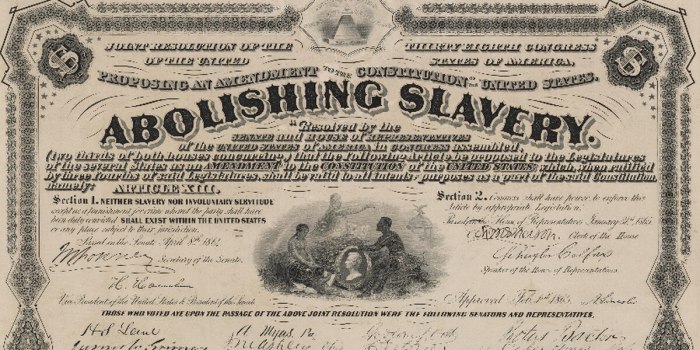Growing up with juneteenth answer key – Growing up with Juneteenth: A Personal and Historical Exploration invites readers to delve into the personal experiences and historical significance of Juneteenth, providing a comprehensive understanding of this pivotal holiday in American culture.
Juneteenth, commemorating the end of slavery in the United States, holds profound meaning for individuals and communities alike. Through personal anecdotes and historical accounts, this article explores the impact of Juneteenth on identity, the evolution of its celebrations, and its role in promoting racial equality and understanding.
Growing up with Juneteenth: Personal Experiences
Growing up, Juneteenth was always a special day in my family. We would gather at my grandmother’s house for a barbecue and a day of celebration. As a child, I didn’t fully understand the significance of the holiday, but I knew it was a time to come together and remember something important.
As I got older, I learned more about the history of Juneteenth and its importance to the African American community. I realized that this holiday was not just about celebrating freedom, but also about commemorating the struggle and resilience of my ancestors.
Family Traditions, Growing up with juneteenth answer key
One of the most important traditions in my family on Juneteenth is the barbecue. My grandmother would spend hours cooking ribs, chicken, and sausage. We would all sit around the table and eat together, sharing stories and laughter.
Another tradition in my family is to go to the local Juneteenth festival. This festival is a time for the community to come together and celebrate. There is music, dancing, food, and games. It’s a great way to learn more about Juneteenth and to connect with other members of the community.
Significance of the Holiday
Juneteenth has had a profound impact on my identity and understanding of Black history. It has taught me about the importance of freedom and the struggle for equality. It has also taught me about the strength and resilience of the African American community.
The Historical Significance of Juneteenth

Juneteenth commemorates the end of slavery in the United States. On June 19, 1865, Union soldiers arrived in Galveston, Texas, and announced that all slaves were free.
The Emancipation Proclamation
The Emancipation Proclamation was issued by President Abraham Lincoln on January 1, 1863. It declared that all slaves in the Confederate states were free. However, the proclamation did not immediately end slavery in the United States. It took two more years for the Union to defeat the Confederacy and for the proclamation to be enforced.
Timeline of Key Events
- 1863:President Abraham Lincoln issues the Emancipation Proclamation.
- 1865:Union soldiers arrive in Galveston, Texas, and announce that all slaves are free.
- 1870:The Fifteenth Amendment to the Constitution is ratified, granting African American men the right to vote.
- 1965:The Voting Rights Act is passed, prohibiting racial discrimination in voting.
- 1980:Juneteenth is recognized as a state holiday in Texas.
- 2021:Juneteenth is recognized as a federal holiday.
Juneteenth Celebrations: Past and Present: Growing Up With Juneteenth Answer Key

Juneteenth celebrations have evolved over time. In the early years, Juneteenth was primarily a day for African Americans to come together and celebrate their freedom. Today, Juneteenth is celebrated by people of all races and backgrounds.
Traditional Juneteenth Activities
- Barbecues
- Parades
- Festivals
- Prayer services
- Educational programs
Contemporary Juneteenth Activities
- Concerts
- Movie screenings
- Art exhibitions
- Historical reenactments
- Community service projects
The Importance of Juneteenth in American Culture

Juneteenth is a symbol of freedom and liberation for African Americans. It is a day to celebrate the progress that has been made in the fight for racial equality.
Promoting Racial Equality and Understanding
Juneteenth is an important day to promote racial equality and understanding. It is a day to learn about the history of slavery in the United States and the struggle for civil rights.
Juneteenth is also a day to celebrate the diversity of the African American community. It is a day to recognize the contributions that African Americans have made to American society.
National and Local Recognition
Juneteenth is recognized as a federal holiday in the United States. It is also recognized as a state holiday in 47 states.
In recent years, there has been a growing movement to make Juneteenth a national holiday. In 2021, President Biden signed a bill into law making Juneteenth a federal holiday.
Juneteenth Education and Awareness

It is important to teach about Juneteenth in schools and communities. Juneteenth is a valuable opportunity to learn about the history of slavery in the United States and the struggle for civil rights.
Resources for Learning More About Juneteenth
- The National Museum of African American History and Culture
- The Equal Justice Initiative
- The NAACP
- The Southern Poverty Law Center
- The Zinn Education Project
Activities and Lesson Plans
- Read books about Juneteenth to children.
- Visit a museum or historical site that tells the story of Juneteenth.
- Attend a Juneteenth festival or parade.
- Create a Juneteenth-themed art project.
- Write a letter to a local newspaper or elected official about the importance of Juneteenth.
Questions and Answers
What is the historical significance of Juneteenth?
Juneteenth commemorates the end of slavery in the United States, specifically in the state of Texas, on June 19, 1865.
How is Juneteenth celebrated?
Juneteenth is celebrated in various ways, including parades, festivals, picnics, barbecues, and educational programs that highlight its historical significance and promote racial equality.
Why is Juneteenth important in American culture?
Juneteenth is a symbol of freedom, liberation, and the ongoing struggle for racial justice in the United States. It serves as a reminder of the horrors of slavery and the resilience of the African American community.